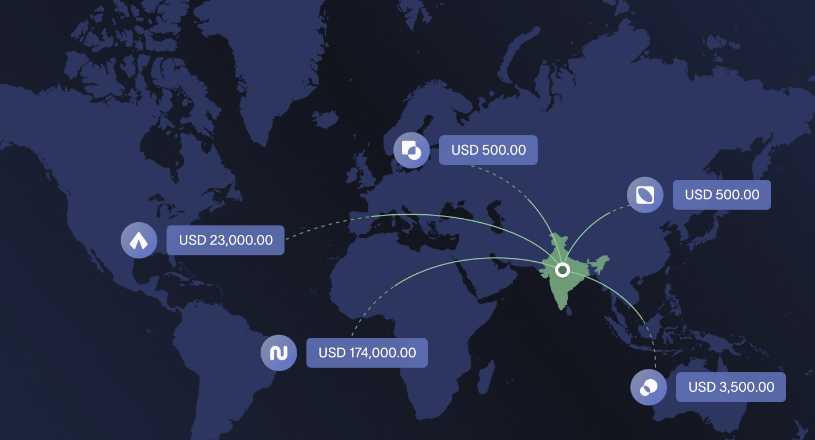Exporting from India isn’t just about finding buyers and shipping goods; it also means playing by the rules of the Reserve Bank of India (RBI). One of those rules revolves around the Export Data Processing and Monitoring System (EDPMS). If you’re bringing foreign currency into the country through exports, you’re expected to close your shipping bills on time in EDPMS. Ignore this, and you risk penalties, audits, or even getting flagged on RBI’s caution list.
This blog will explain why this is important and how to make sure your company follows the rules.
What is EDPMS?
The Export Data Processing and Monitoring System (EDPMS) is an online platform created by the Reserve Bank of India (RBI). Its purpose is to organize and supervise financial transactions linked to exports for Indian businesses.
The EDPMS Process for Businesses in India
The EDPMS process involves several steps to track export payments:
- Export Data Submission: Exporters electronically send shipping bill information into EDPMS. Customs data is automatically included for accurate updates.
- Bank Involvement: Banks check shipping bill details against Customs records. Exporters provide their export documents (invoice, shipping bill, bill of lading) to their bank.
- Realization of Export Proceeds: Banks update EDPMS with payment details once they receive the money. The system keeps track of payments against each shipping bill.
- Automated Reporting: EDPMS sends updates on the status of transactions to exporters and banks. The system also sends alerts for any differences or delays.
- Reconciliation and Discrepancy Resolution: Exporters and banks regularly check their export data to make sure it matches. Any differences are fixed through communication and cooperation.
- Closure of Export Transactions: Transactions are marked as complete once the money is received and all rules are followed. Banks report these completed transactions to the RBI through EDPMS.
Why is EDPMS Important for International Business Remittance?
For money coming into India from abroad, businesses need to update the relevant portal for several important reasons:
- Improved Cash Flow Management: By tracking payment statuses instantly, businesses can better manage their money flow and make sound financial choices.
- Enhanced Customer Service: Timely and correct updates help businesses offer better service to their international clients, leading to greater client satisfaction.
- Organized Operations: Automated processes reduce the need for manual data entry and paperwork, making operations more effective and organized.
- Risk Reduction: Spotting issues or differences early through automated alerts helps lower the risks linked to payment delays or mistakes.
- Data Accuracy and Reliability: EDPMS ensures data is correct and dependable by combining information from different sources, reducing the chance of errors in financial records.
- Performance Review: Businesses can use data from EDPMS to review their performance, understand trends, and make plans based on export and payment information.
- Better Communication: The system helps improve communication among exporters, banks, and regulatory bodies, ensuring everyone is on the same page.
- Readiness for Audits: Keeping accurate records and documents through EDPMS prepares businesses for internal and external checks, ensuring compliance and openness.
Simplifying Compliance for Small Exporters: The New RBI Directive
India’s online commerce industry has grown significantly, with small businesses and individual sellers using digital platforms to connect with international customers. However, for many small exporters, especially those dealing in shipments under USD 1,000, the journey has not been easy. Compliance systems meant to help them often created more obstacles than assistance.
For instance, Sarthak, an artisan from Jaipur, received a $900 order from an international buyer but chose to decline it. He knew the paperwork and reconciliation process would reduce his already small profits too much.
Stories like Sarthak’s are very common in India. That is why the Reserve Bank of India (RBI) has introduced a new rule that is changing things for small exporters. This new RBI directive aims to simplify the closure of small value shipping bills under EDPMS (Export Data Processing and Monitoring System) and support Indian sellers in reaching their expansion goals.
Let us look at what is changing and how it can make your export journey smoother and faster.
New RBI Directive for Small Exporters
On November 28, 2024, RBI released Notification No. FE.CO.Trade Se9/05.31.042/2024 25. This allowed Authorized Dealer (AD) banks to close export shipping bills valued up to USD 1,000 (or the Indian Rupee equivalent) without needing an Electronic Bank Realisation Certificate (eBRC), provided specific conditions are met. This measure, initially applicable until March 31, 2025, has now been extended to September 30, 2025.
Aim of the Directive
The main aim of this directive is to lessen the compliance burden for exporters dealing with small value online commerce shipments. Before this, exporters had to go through a costly and time consuming process to reconcile each shipping bill through the EDPMS system. This was particularly difficult for small and medium sized businesses.
The new rule is made with small businesses in mind, especially those doing business to customer (B2C) exports. It allows them to spend more time growing their business and less time handling paperwork.
How the New Directive Benefits Indian Exporters
The RBI’s new framework is a major positive change for online exporters and small and medium sized businesses in India:
- Lower Compliance Costs: Exporters can save a lot by not paying reconciliation fees of ₹1,000–2,000 per shipping bill. This update significantly reduces paperwork and fee related burdens for online commerce sellers.
- Faster Closures: Exporting usually involves a lot of paperwork. But with the new directive, small businesses handling lower volume shipments can expect much less paperwork and quicker processing times. The updated guidelines aim to reduce administrative delays by making compliance easier for exporters involved in inward money transfers and allowing the closure of shipping bills without eBRCs. This means quicker access to government incentives and fewer delays in completing financial records.
- Boost to Online Commerce Exports (More Sellers Going Global): A large part of cross border online commerce shipments are under the USD 1,000 limit, making this directive especially helpful for online sellers. With easier compliance, more small Indian sellers may feel confident to try global trade. This will encourage first-time exporters.
- Encourages Lawful Trade: By focusing on KYC and AML compliance, the directive ensures that trade remains secure while supporting honest exporters.
- Clear Improvement in Banking Operations: Banks can also work more effectively and quickly when the compliance rules for low-volume exports become simpler. This, in turn, will help them offer better financing options to exporters with careful checks and good rates.
Why Timely Closure Protects Your Business
Timely closure of shipping bills in EDPMS is not merely a bureaucratic requirement; it is a fundamental practice that safeguards your business from significant risks and contributes to its long term success.
Avoid RBI flags and penalties
The most immediate benefit of timely closure is avoiding the severe consequences of non compliance. If export proceeds are not realized and accounted for within the stipulated period (typically nine months, with extensions possible), the RBI can flag the exporter. Prolonged outstanding entries, especially those exceeding two years, can lead to automatic caution listing. Being on this list means:
- Increased scrutiny on all future transactions.
- Difficulty in obtaining essential banking facilities like packing credit.
- Potential delays or denials of export incentives and GST refunds.
- Risk of monetary penalties under FEMA.
- Even investigations by enforcement agencies.
Timely closure helps you steer clear of these adverse actions, ensuring your business remains in good standing with the regulator.
Conclusion
The RBI’s new directive to simplify the closure of shipping bills is an important change that helps online commerce businesses, especially small and medium sized ones, participate confidently in global trade. By reducing reconciliation fees and simplifying paperwork, the move significantly lowers the difficulties related to export compliance.
Small exporters play a very important part in India’s export system. Making processes simpler for them is not just about reducing compliance costs; it is about helping them compete globally.
The RBI’s directive may be temporary for now, but it is a good beginning. Hopefully, it starts a bigger move towards exporter-friendly policies that support small sellers and online businesses in India. For Indian businesses, managing international payments efficiently is just as important as availing schemes like IES. Whether it’s receiving export proceeds or handling other global transactions, having reliable and cost-effective payment solutions is key.
Start receiving your international payments faster and for less with BRISKPE. Explore BRISKPE Now!








